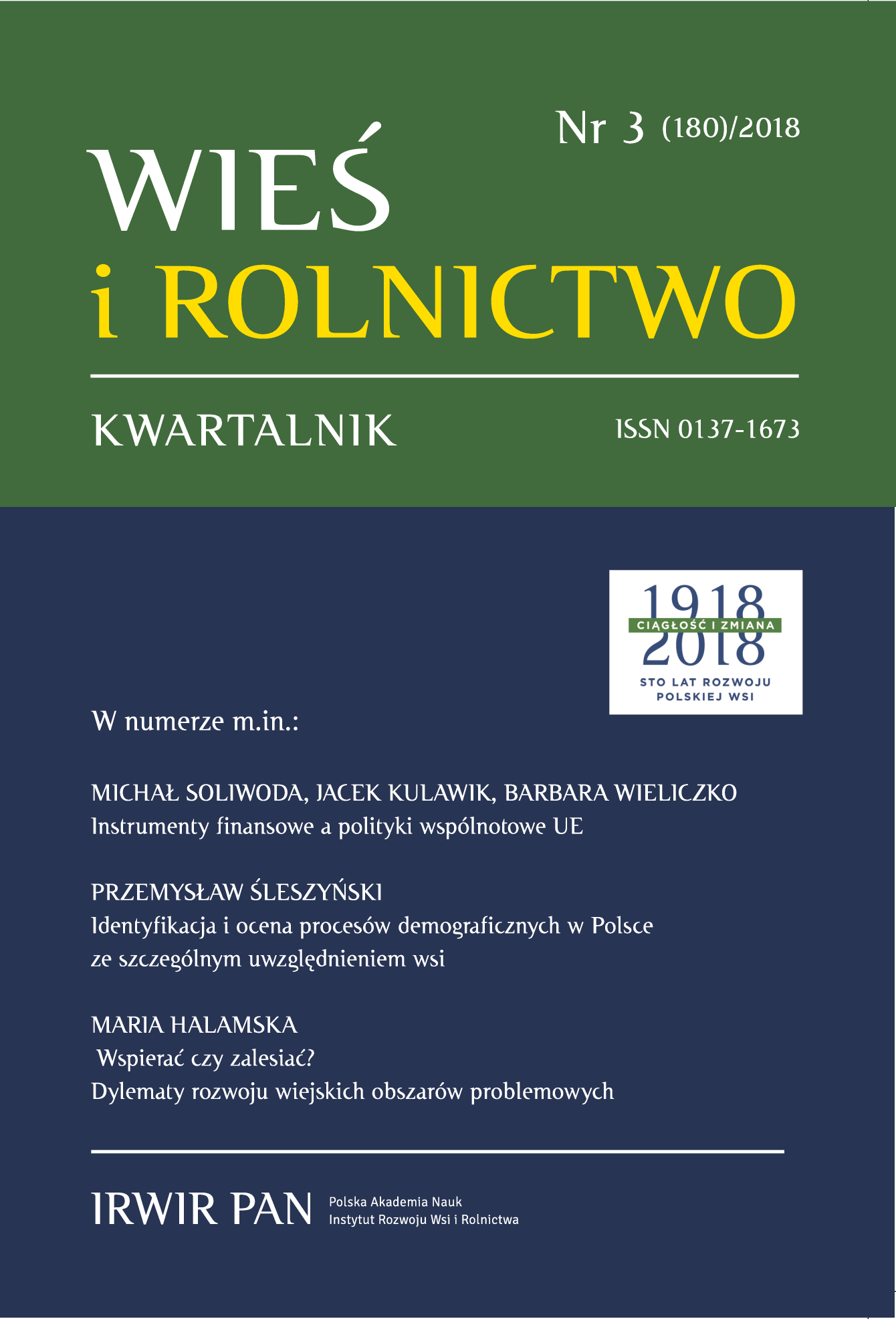Negatywne skutki regulowania cen rolnych
Negative Effects of Agricultural Price Regulation
Author(s): Andrzej JędruchniewiczSubject(s): Politics, Agriculture, Sociology, EU-Legislation
Published by: Instytut Rozwoju Wsi i Rolnictwa Polskiej Akademii Nauk
Keywords: prices; market; state interventions; agriculture
Summary/Abstract: The prices fulfil many functions in the market economy. The main ones areinformation, allocation and income distribution. This is why they are seen as a crucialcategory in economics and they are a matter of interest of buyers and sellers. This refersalso to farms. The paper is theoretical in character. Its goal is to present and discuss negativeconsequences of setting prices for agricultural products on higher levels than it would beon purely free market, as well as of keeping stable agricultural prices by the state. The paperdiscusses the cost theory of prices, subjective theory of prices, the market functions of prices,the goals and forms of state intervention in agriculture, and the negative consequencesof the interventions aimed at raising and stabilisation of agricultural prices. It was revealedthat, while improving the economic situation of farmers, these interventions decreasethe social welfare while contributing to increase in production over the level of the marketequilibrium, non-optimal (from the customers’ point of view) allocation of the factorsof production, higher taxation of the other sectors of the economy, use of too large areasof the land, increase of employment in administration (that is keeping people away frommore productive work), lowering the level of farmers’ entrepreneurship and innovativeness,discouraging farmers from lowering their production costs, problems with eliminatingnot economically viable farms from the market, and decreasing the farm owners’ attemptsaimed at lowering their dependence on environmental conditions.
Journal: Wieś i Rolnictwo
- Issue Year: 180/2018
- Issue No: 3
- Page Range: 137-154
- Page Count: 18
- Language: Polish

